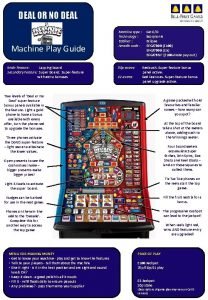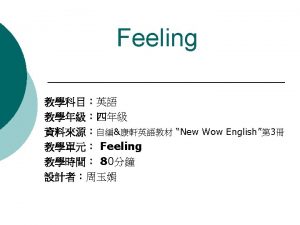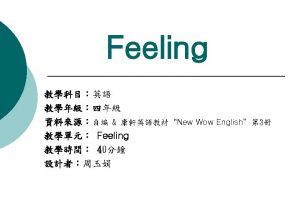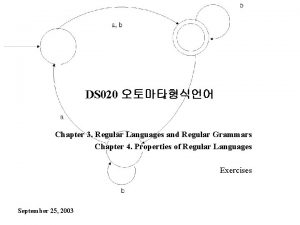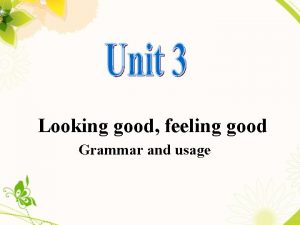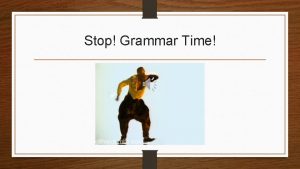Its a Good Deal Grammar He is angry

















- Slides: 17

It's a Good Deal Grammar

He is angry, isn't he? It is expensive, isn't it?

tag question to. . • check information • get agreement

tag questions. . Affirmative Negative He is angry, isn't he? Negative Affirmative It isn't cheap , is it?

Affirm. Sent. Neg. Tag Your name is Ali Khalid, isn’t it? You were born in Abha, weren’t you? You live in Dammam, don’t you? You studied in Dhahran, didn’t you? You’ve graduated, You’re going to work in Riyadh, haven’t you? aren’t you?

Neg. Sent. Mariam isn’t American, Affirm. Tag is she? She wasn’t born in the United States, was she? She doesn’t speak English, She didn’t work in a school, does she? did she? She hasn’t lived in the United States, has she? She isn’t going to move here, is she?

aren't they haven't you did he were they didn't she doesn't it don't we isn't it

1. She is beautiful, 2. They love parties, 3. He didn't go to school, 4. You don't speak french, 5. You watched the movie, 6. The boys aren't in the library now, do you? are they? don't they? didn't you? isn't she? did he?

Isn’t he tired of working there? Haven’t you finished your homework yet? ! Aren’t you coming with us? Don’t you live near the beach?

We sometimes use negative questions to. . • check information • express surprise.

1. You recognize an old friend at the mall. The friend doesn’t recognize you. 1. Don’t you remember me? 2. Your friend is eating popcorn and is not offering you any. 2. Aren’t you going to offer me some popcorn? 3. You are playing a board game. You want your friend to play the game too. 3. Don’t you want to play this game too? 4. Someone came and joined your group, greeted everyone, but forgot you. 4. Don’t you want to say hello to me? / Didn’t you see me? 5. Classes start at eight o’clock. It’s 8: 30, and your brother is still in bed. 5. Aren’t you going to school?

We sometimes use be able to to. . • express ability to do something • can / can't

We usually use be able to in. . 1. past simple tense with ( was / wasn't / weren't) • Were you able to arrive to school on time yesterday. • I wasn’t able to come to the park.

We usually use be able to in. . 2. future tense with ( will / won't) • He won’t be able to play basketball today. • Will you be able to go out with us tomorrow?

A: Was Hameed able to ride the horse? B: Yes, he was. 1. Hameed A: Were the players able to play tennis? 2. the players B: No, they weren’t.

A: Was Adnan able to drive the car? B: Yes, he was. 3. Adnan A: Was Majedah able to bake the cake? B: No, she wasn’t. 4. Majedah

 Deal or no deal machine
Deal or no deal machine Asset deal vs share deal
Asset deal vs share deal Angry i guess
Angry i guess Happy sad angry hungry
Happy sad angry hungry Hungry angry
Hungry angry Good thoughts good deeds good actions
Good thoughts good deeds good actions Hello hi good evening
Hello hi good evening Good afternoon animado
Good afternoon animado You are good when theres nothing good in me
You are good when theres nothing good in me Good evening students
Good evening students Right linear grammar
Right linear grammar What is traditional grammar in linguistics
What is traditional grammar in linguistics Chomsky hierarchy
Chomsky hierarchy Right linear grammar
Right linear grammar A graphic language and has its own alphabet and grammar
A graphic language and has its own alphabet and grammar Morning sentence for class 5
Morning sentence for class 5 Good afternoon grammar
Good afternoon grammar Good morning distinguished guests
Good morning distinguished guests
